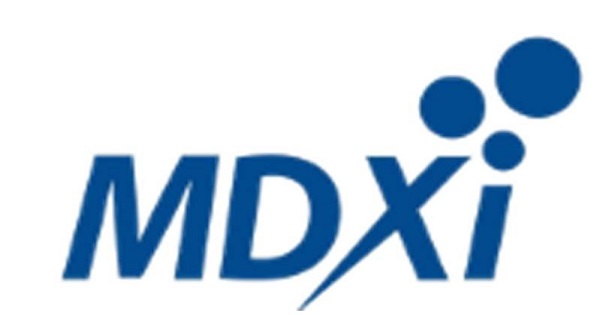E-Business
MDXi Joins Data Centre Leaders, Uptime Institute to Discuss Africa’s Digital Transformation

MDXi, West Africa’s leading data centre company, has reiterated the importance of edge data centres to enable African consumers enjoy improved online experiences with much reduced latency, while significantly reducing transit costs.
Gbenga Adegbiji, company’s general manager responsible for its West African expansion, quoted an ACG Research (a Telecoms analyst and consulting firm) report that estimates that caching content locally in a metro with a population of about 1 million can lead to a 50 percent cost reduction over the long-haul transport method, within a five-year span.
Speaking during his plenary presentation on the topic ‘Deploying at the Edge – Bringing content closer to West African eyeballs”, during the just concluded Data Centre Dynamics Conference in Johannesburg, South Africa, Mr. Adegbiji challenged the continent’s leading content and application providers to take advantage of the growing edge data centre ecosystem to exchange traffic on the continent, noting that this would significantly lower costs, improve performance of the existing content ecosystem and enable new technology use cases in Africa such as Electronic Gaming, Internet of Things, Artificial Intelligence and Big Data.
According to him, Africa boasts some of the biggest opportunities; a population of 1.3billion people, the fastest growing digital consumer market, estimated to reach 600 million within the next seven years and 6-7% GDP growth by 2020.
He emphasized that most of the typical concerns about Africa have been resolved; local data centres have leapfrogged power supply issues by bypassing traditional transmission and distribution bottlenecks with direct grid connections; local colocation facilities are being built to meet hyperscale requirements and a few indigenous data centres sport industry awards and global recognitions such as the Payment Card Industry Data Security Standards (PCI-DSS), Uptime Institute’s Tier III Constructed Facility certification (TCCF,) as well as ISO 9001 and 27001 certifications.
Mr. Adegbiji also noted the increased investments and growth in last-mile fibre infrastructure and the rise of home-grown companies building open-access networks to foster interconnection opportunities.
Reiterating that most issues with latency cannot be solved with technology alone due to geography, Adegbiji urged global players to augment their data centre portfolios with edge deployments especially in Nigeria, to drive more value from the Internet.
“With Africa’s largest economy (90% of Anglophone West Africa’s GDP), third most populous nation by 2050, and 8th global internet user country with 45% of Africa’s internet users, Nigeria is a natural and strategic destination for West Africa-focused hyperscale players to offer real-time data processing at the edge. With robust Internet Exchange Points and access via local interconnection points, data centres such as MDXI provide a platform for different networks to directly interconnect with other operators and exchange traffic in Nigeria to guarantee lower bandwidth costs and improved margins for content owners and OTTs, quicker access to more content providers and carriers as well as lower latency and improved experience for local users”, he said.
He also highlighted that MDXi is building a Data Centre ecosystem across West Africa with investments in its Tier III Lekki Data Centre in Lagos and upcoming investments in in Sagamu – Ogun State, Accra – Ghana, Abidjan – Cote D’Ivoire and Dakar – Senegal.
“We remain committed to enabling West Africa’s digital transformation with investments in fibre infrastructure and data centres”, Adegbiji concluded.
E-Business
Nigeria Targeted with 4,622 Cyber-attacks Per Week in December 2025

In December 2025, organisations globally faced sustained cyber pressure, as the average number of cyber-attacks per organisation per week reached 2 027, a 1% increase from the previous month and a 9% increase from December 2024.

This is according to December 2025 Global Cyber Attack Statistics by Check Point Research, the threat intelligence arm of Check Point Software Technologies.
According to the statistics, Latin America was the hardest hit, with companies experiencing an average of 3 065 cyber-attacks per week, a 26% year-over-year increase.
In contrast, Africa saw a decline in attacks, with Nigeria (4 622 attacks per week) and Angola (4 002 attacks per week) being the most targeted countries on the continent.
The report’s findings highlight the evolving cyber threat landscape, with ransomware and GenAI-driven data risks posing significant challenges to companies worldwide.
Ransomware attacks jumped 60% year over year, with 945 publicly reported incidents in December. Qilin was the most active ransomware operator, responsible for 18% of publicly disclosed attacks.
“Ransomware continues to scale through industrialised operations, while unmanaged GenAI usage is creating widespread data exposure at enterprise level,” said Omer Dembinsky, data research manager at Check Point Research.
The report noted the education sector was the most targeted industry globally, with 4 349 cyber attacks per week; followed by government (2 666 attacks per week); and associations and non-profits (2 509 attacks per week).
The widespread adoption of GenAI tools has introduced new cyber security risks, with one in 27 GenAI prompts posing a high risk of sensitive data leakage.
Experts warn that companies must prioritise prevention-first security, real-time AI threat intelligence and strong governance over AI tools to mitigate these risks.
Hendrik de Bruin, head of security consulting at Check Point Software, added: “Strengthening ransomware resilience, deploying AI-powered prevention and enforcing clear GenAI governance will be critical to reducing cyber risk in the year ahead.”
E-Business
Half of Global Companies Build SOCs to Enhance Cybersecurity, with a Focus on Human Expertise

Among the primary reasons for establishing a Security Operations Center (SOC) are strengthening cybersecurity posture, enabling faster detection and response and gaining a competitive edge.

Interestingly, despite the increasing demand for automated cybersecurity solutions, businesses rely on skilled security professionals to make key decisions, as human expertise remains essential for effective security management.
A Security Operations Center (SOC) is a dedicated organisational unit responsible for continuous monitoring and safeguarding of a company’s IT infrastructure. Its core mission is to proactively detect, analyse and respond to cybersecurity threats.
To identify the main drivers, strategic priorities, and potential challenges in SOC planning and implementation, Kaspersky has conducted a comprehensive global study involving senior IT security specialists, managers and directors from companies with 500 or more employees.
All participants operate without a SOC but have plans to establish one in the near future. The study spans 16 countries across APAC, META, LATAM, Europe, and Russia, providing valuable insights into the emerging trends and best practices in SOC development worldwide.
The findings of the research reveal that 50% of companies intend to establish SOCs to strengthen their cybersecurity posture, and 45% are motivated by the need to address increasingly sophisticated and dangerous threats.
Other drivers include budget optimisation, the necessity for faster detection and response, and the expansion of software, endpoints and user devices – factors that demand more comprehensive and layered security measures.
These are cited by 41% of organisations. Additionally, 40% seek better protection of confidential information, 39% aim to meet regulatory requirements and one-third (33%) expect SOC capabilities to provide a competitive edge. Larger enterprises tend to cite each of these reasons more often, reflecting the broader operational and regulatory pressures they experience.
Continuous monitoring becomes the leading SOC requirement
Among the key functions organisations plan to delegate, 24/7 security monitoring leads at 54%. This around-the-clock vigilance enables early detection of anomalies, prevents escalation and sustains cyber resilience in real-time. This demand highlights a strategic requirement for proactive risk management, as organisations aim to defend against persistent threats that can strike at any moment.
Companies intending to fully outsource SOC operations show a stronger interest in applying “lessons learned” methodologies, whereas those developing internal SOCs focus more on access management to maintain tighter control.
Human expertise drives SOC technology choices
While SOCs use advanced technology, the choices made by organisations show that human analysts are very important. Among the solutions that organisations plan to include in SOC are – Threat Intelligence Platforms (48%), Endpoint Detection and Response (42%) and Security Information and Event Management systems (40%) – sophisticated solutions that automate data collection and reduce operational load, however, they depend heavily on skilled security professionals who provide critical context, interpret complex findings and make final decisions when guiding appropriate responses.
Other solutions chosen include Extended Detection and Response (38%), Network Detection and Response (37%) and Managed Detection and Response (33%). Large enterprises tend to adopt more technologies (5.5 per SOC on average), while smaller ones integrate fewer (3.8).
“To successfully build a SOC, companies must prioritise not only the right mix of technology but also the careful planning of processes, clear goal-setting and effective resource distribution.
“Well-defined workflows and continuous improvement are essential to ensure that human analysts can focus on critical tasks, making the SOC a proactive and adaptable component of their cybersecurity strategy,” comments Roman Nazarov, Head of SOC Consulting at Kaspersky.
E-Business
Nigerian Terra Industries Secures $11.8m for Expansion

Terra Industries, a Nigerian defence technology startup, has raised $11.75 million to expand its development of defensive systems that protect critical facilities across Africa.

The fundraising round was led by Silicon Valley venture firm 8VC, which was founded by Palantir co-founder Joe Lonsdale.
Other investors in the round include Valour Equity Partners, Lux Capital, SV Angel, and Nova Global, as well as African-focused funds Tofino Capital, Kaleo Ventures, and DFS Lab.
Terra Industries, founded in Abuja by Nathan Nwachuku and Maxwell Maduka, provides multi-domain security solutions for both air and land. Its solutions are intended to detect and respond to threats including terrorism, sabotage, and armed attacks on infrastructure.
The company’s product portfolio includes surveillance drones, ground-based robotic systems, and fixed monitoring towers deployed around sensitive locations.
Co-founder and CEO Nathan Nwachuku said the company has now fully embraced its identity as a defence-focused startup, citing the growing urgency of security challenges across Africa.
He said safeguarding critical infrastructure from terrorist threats has become unavoidable.
Nwachuku argues that protecting Africa’s infrastructure requires a different approach, one that combines local manufacturing, end-to-end system control, and software capable of independently identifying and responding to threats over large areas.
The company aims to position itself as a defence prime, similar to the role played by firms such as Anduril Industries and Palantir in the United States.
Nwachuku also disclosed that the company had earlier raised $800,000 in pre-seed funding.
With the new funding, Terra plans to increase manufacturing capacity within Africa, establish additional defence production facilities, and expand its artificial intelligence and software teams.
While software offices are planned for San Francisco and London, the company said manufacturing operations will remain on the continent.

 E-Financial3 days ago
E-Financial3 days agoPaystack Expands Beyond Payments into Banking

 E-Financial3 days ago
E-Financial3 days agoSEC Partners Police in Nationwide Crackdown on Ponzi Schemes, Crypto Frauds

 General News3 days ago
General News3 days agoEFCC to Use Space Technology to Boost Asset Tracking, Investigations

 E-Business3 days ago
E-Business3 days agoNigeria Targeted with 4,622 Cyber-attacks Per Week in December 2025

 E-Financial3 days ago
E-Financial3 days agoFG Halts Tax Guidelines Amid Uncertainty Over Final Laws – Oyedele

 E-Financial3 days ago
E-Financial3 days agoPaystack Buys Microfinance Bank, Enters Nigeria Banking Arena

 News3 days ago
News3 days agoFG Directs Banks, Fintechs to Remit VAT on Service Fees

 E-Financial2 days ago
E-Financial2 days agoSEC Hikes Minimum Capital Requirements for Market Operators After a Decade














